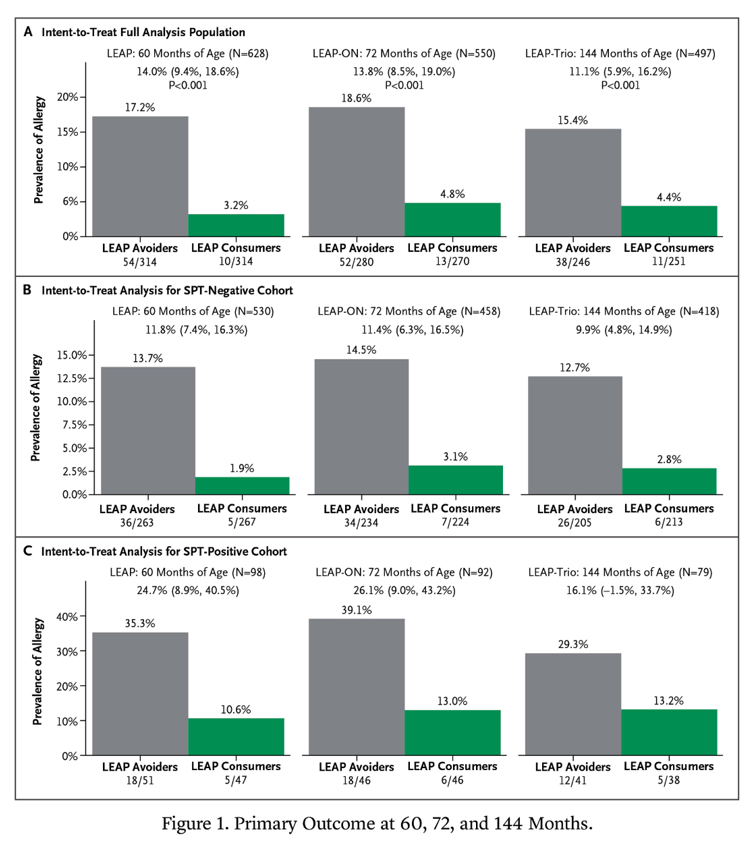GD Toit et al. NEJM Evid 2024;3(6) DOI: 10.1056/EVIDoa2300311. Follow-up to Adolescence after Early Peanut Introduction for Allergy Prevention
Methods: This follow-up trial (followed ~80% of initial randomized cohort) examined the durability of peanut tolerance at age 144 months after years of ad libitum peanut consumption.
Key findings:
- At age 144 months, peanut allergy remained significantly more prevalent in participants in the original peanut avoidance group than in the original peanut consumption group (15.4% [38 of 246 participants] vs. 4.4% [11 of 251 participants].
- Both groups (early peanut avoidance group and early peanut consumption group) had periods of prolonged peanut avoidance between 72 months and 144 months.
My take (borrowed from authors) Peanut consumption, starting in infancy and continuing to age 5 years, provided lasting tolerance to peanut into adolescence irrespective of subsequent peanut consumption.
Related blog posts:
- The Peanut Story -From NEJM Blog
- “Separating Fact from Fiction in the Diagnosis and Management of Food Allergy”
- Peanut Allergy Prevention Guidelines
- LEAP-ON Study: Early Peanuts Prevent Allergies
- The Peanut Story -Skin Patch Chapter
- Best Allergy Articles 2021-Cow’s Milk Allergy
- How Likely/Persistent is Eosinophilic Esophagitis with Peanut Oral Immunotherapy
- Georgia AAP Nutrition Symposium 2019: Food Allergy Immunotherapy
- The “EAT” Study | gutsandgrowth
Links: Prevent Peanut Allergy (National Peanut Board)


Pingback: Allergy Prevention Strategy: Early Exposure Beneficial (Long-term Data for Peanuts) - reviewer4you.com